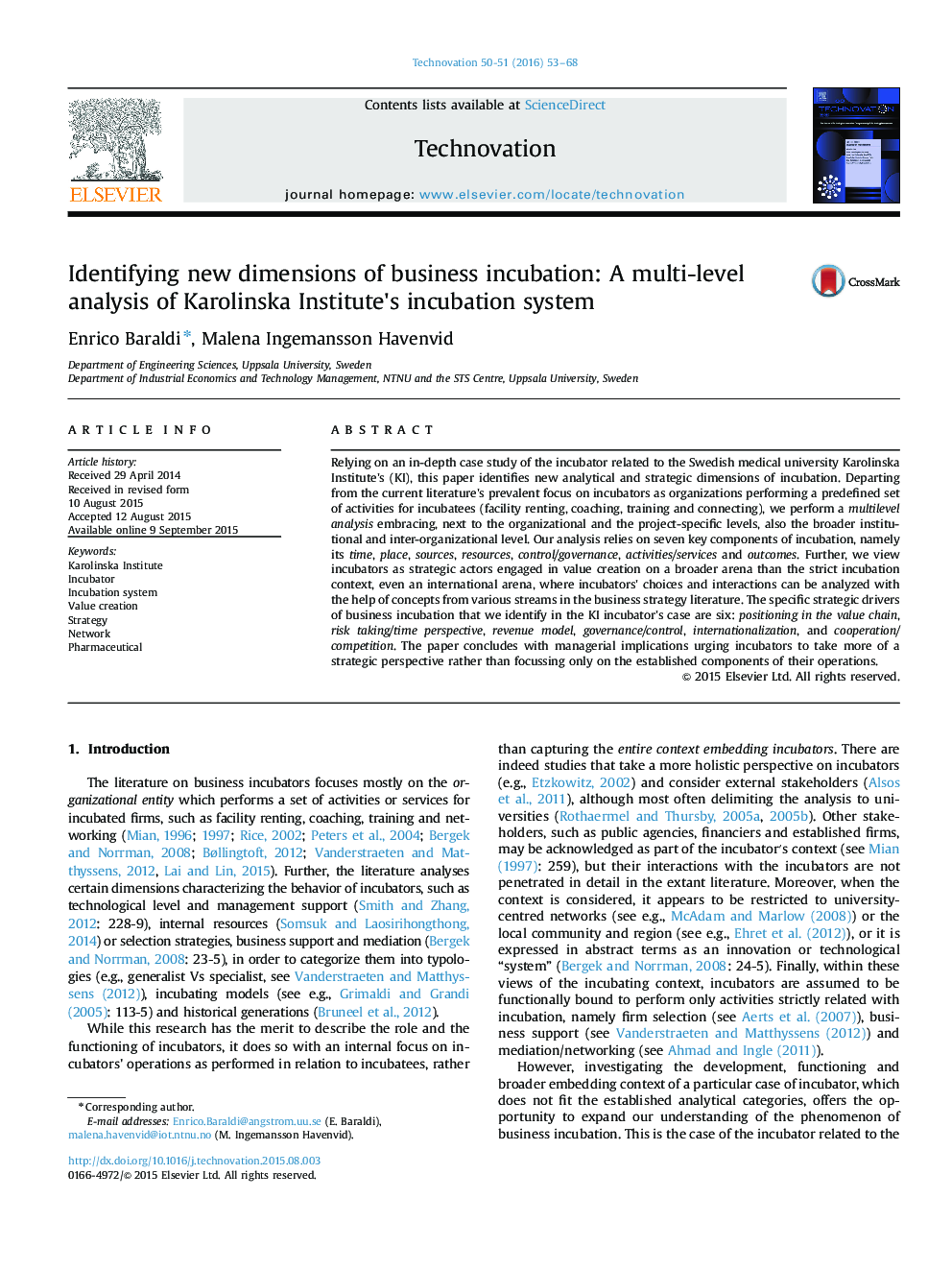| Article ID | Journal | Published Year | Pages | File Type |
|---|---|---|---|---|
| 1021804 | Technovation | 2016 | 16 Pages |
Relying on an in-depth case study of the incubator related to the Swedish medical university Karolinska Institute's (KI), this paper identifies new analytical and strategic dimensions of incubation. Departing from the current literature's prevalent focus on incubators as organizations performing a predefined set of activities for incubatees (facility renting, coaching, training and connecting), we perform a multilevel analysis embracing, next to the organizational and the project-specific levels, also the broader institutional and inter-organizational level. Our analysis relies on seven key components of incubation, namely its time, place, sources, resources, control/governance, activities/services and outcomes. Further, we view incubators as strategic actors engaged in value creation on a broader arena than the strict incubation context, even an international arena, where incubators' choices and interactions can be analyzed with the help of concepts from various streams in the business strategy literature. The specific strategic drivers of business incubation that we identify in the KI incubator's case are six: positioning in the value chain, risk taking/time perspective, revenue model, governance/control, internationalization, and cooperation/competition. The paper concludes with managerial implications urging incubators to take more of a strategic perspective rather than focussing only on the established components of their operations.
